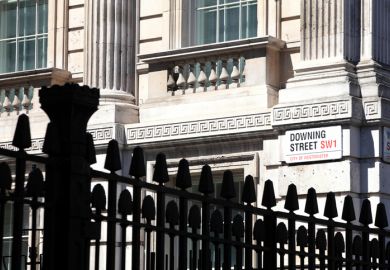Students applying to highly subscribed institutions and courses will likely have to wait until 2021 to take up their places as universities are unable to expand their intake because of coronavirus restrictions.
This is particularly the case for students who applied for medical or teaching courses – which have external government-imposed caps as well as additional health and safety issues – and who now meet the conditions for entry following the government’s latest U-turn.
University admission offices have continued to deal with the fallout from the A-level debacle this week after the government backtracked and said students would be allowed to use their teacher-assessed grades for university entry rather than grades determined by an algorithm. This was after more than a quarter of a million results were initially downgraded from teacher estimates as part of a standardisation process brought in because exams were cancelled during the coronavirus pandemic.
Many institutions said they had already admitted students who narrowly missed their grades, but there is likely to be a huge number of applicants who will now see their official marks improved. As of 18 August, more than 80,000 students had either accepted a place that was not their first choice or were still deciding on their next move.
The University of Bristol has said it “will accept applicants who have met the terms of their offer” but explained that for courses with externally defined caps, such as medicine and dentistry, students will be asked to wait a year. Queen Mary University of London said it too would guarantee a place to those who now meet the terms of their original offer and added that “all admissions processing for medicine has been paused”.
The University of Oxford said that “with the change in the government’s A-level awarding policy, we now have many more offer-holders meeting their grades than in a normal year. As a result, Oxford does face significant capacity constraints both within our colleges and on our academic courses.”
It was working to ensure that all those students who now meet their offer conditions are “admitted either this year or next”.
As of Monday, the University of Bath was at capacity for the number of students it had calculated was “safe for students, staff and the wider Bath community”, it said.
Mike Nicholson, director of student recruitment and admissions at the institution, said Bath would admit applicants who now meet their original offer “but based on the safety of the campus, it will likely be for 2021 entry”.
“We will begin to see students having to make a choice: ‘Do I want to wait a year and come to my first choice in 2021, or do I take the offer I have for another university and come in 2020?’
“This will have massive implications for the 2021 admissions process. We will need as much insight and guidance from the government about its plans as early as possible,” he added.
Stuart Corbridge, the vice-chancellor of Durham University, said that although the university’s urge was to help everyone get on the course they wanted in the year they wanted, “we can’t guarantee entry to everyone in 2020; there are constraints relating to health and safety and teaching capacity.”
Although Durham does not have to deal with the constraints of having a medical school, there are concerns surrounding housing, especially in a small city, and from being a collegiate institution. The number of students who can be admitted “also depends on how many missing international students there are”, Professor Croft said.
Sir David Bell, vice-chancellor of the University of Sunderland, said his institution would be able to cope with an increase overall but pointed out that there was no additional capacity for medicine or teacher training. “Looking on the bright side, this year the vast majority of those students who want to go into higher education will be now able to find a place,” he said.
What would help the situation would be financial help from the government “for additional medical or health placements within GPs or the NHS, but also because we are incurring additional costs as we basically go through a second round of clearing, which is expensive”, he added.
“We also have to now look to 2021, and the government has to work with the sector to avoid something like this happening again,” Sir David said.
Richard Harvey, academic director of admissions at the University of East Anglia, agreed that the government needed to step in to help clear up a mess that had been “completely preventable”.
“Where the problem is acute is medicine,” he said. “The government caps the numbers. We need that cap removed rapidly and funds to be found.”
Register to continue
Why register?
- Registration is free and only takes a moment
- Once registered, you can read 3 articles a month
- Sign up for our newsletter
Subscribe
Or subscribe for unlimited access to:
- Unlimited access to news, views, insights & reviews
- Digital editions
- Digital access to THE’s university and college rankings analysis
Already registered or a current subscriber?




